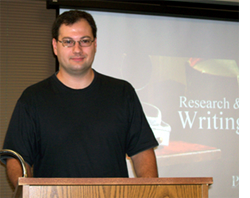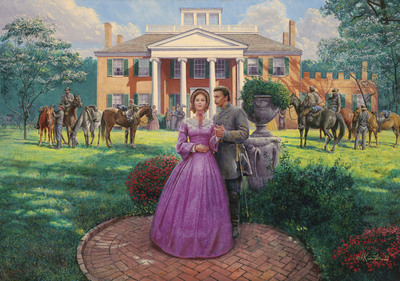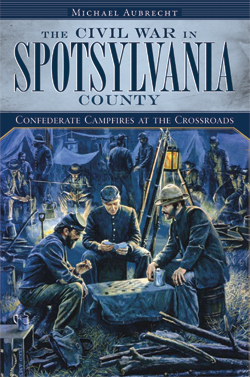Back from the 'Burg
 I just returned home from a great extended-weekend up in Pittsburgh. It was a blend of business and pleasure and in addition to conducting a very successful talk for the Pittsburgh Writers Group on research and writing, I also spent time with family and friends, took the kids to Kennywood Park, got to wear a couple Super Bowl rings at my wife’s 20th reunion, and ate a monster sammich’ at Primanti Brothers. With the Steelers opening the season upon our arrival with a win, it was the perfect trip. Below are excerpts from my handout and I will be posting the complete transcripts and slides from this 2-hour lecture over on my website later this week.
I just returned home from a great extended-weekend up in Pittsburgh. It was a blend of business and pleasure and in addition to conducting a very successful talk for the Pittsburgh Writers Group on research and writing, I also spent time with family and friends, took the kids to Kennywood Park, got to wear a couple Super Bowl rings at my wife’s 20th reunion, and ate a monster sammich’ at Primanti Brothers. With the Steelers opening the season upon our arrival with a win, it was the perfect trip. Below are excerpts from my handout and I will be posting the complete transcripts and slides from this 2-hour lecture over on my website later this week.
TOP 10 RESEARCH TIPS FOR WRITERS
Some of these steps are used in college writing courses and some are from my own personal playbook. They are universal and you can apply them to any genre.
1. GIVE IT TIME: When first entering into a research project always give yourself enough prep time to work and to adequately collect your materials. As writers we often live and die by deadlines, but you must allow yourself a realistic opportunity to gather sources. Also look at the back end of the project. Tentatively map out time for editing and fact-checking in your schedule. Hopefully everything will run smoothly, but prepare yourself and your publisher in case it doesn’t. It is also quite common for last minute materials to come to your attention. Often people will get wind of your project and send things that you didn’t even know existed. I always have a 1-2 month buffer clearly defined in my book contracts just in case the unexpected happens.
2. DEFINE YOUR GOALS: Write yourself a mission statement and then outline what you will need to achieve it. Once, I literally wrote the back cover copy of a book first. That gave me a “mental goal” to shoot for as I began to assemble the pieces of the puzzle. Of course at the same time you have to remain flexible and be willing to change or modify your plan of action if it will benefit the work. I just finished co-producing a Civil War documentary and we were literally shooting 16 hour days while constantly shifting locations and schedules. We had a storyboard when we started, but as the film evolved, we had to evolve with it. One day we worked from 8:30 am to 2:30 am and over the course of that day we had to constantly adjust our plans. Be firm, but flexible.
3. PREP YOU TOO: Take some time to familiarize yourself with the libraries and archives you’ll be using. Each collection has its own system for reference materials and chances are they’ll have separate technologies to help you along. It’s a good idea to talk to the staff about where and how to start. If you’re under deadline, you don’t want to waste precious time trying to figure out where to locate materials. Make sure you know how to operate their microfilm viewers or computers. (They are not all the same). Also be sure to pack well. I travel sometimes when conducting research and I take a tablet, folders, a laptop, digital camera, pencils and pens, post-its, and you can even take a tape recorder if that works for you. These are the tools of our trade. Use them.
4. BE SPECIFIC: When you are compiling source materials (whether you are photocopying them or not) always be sure to take copious notes and write any additional info down on them that you may need later. This includes vol. numbers, titles, locations where they were found, what type of media they were presented on, any credit information etc. The last thing you want to do is spend hours and hours digging for a source and then a month later when you actually go to use it, have no recollection of where it came from. In addition, you may need to contact the archivist and/or librarian to request more information and you must refer them to a specific item. It’s not their job to redo your research. Write it all down. You’ll thank me.
5. NEVER GO SOLO: This is common sense in a lot of regards, but it cannot be stressed enough. NEVER use a single source. If you can’t find additional sources to validate a statement, delete it, or at least present it as speculation and honestly say “according to ____ …” You must establish credibility and once you lose that the rest of the piece is tainted. Research doesn’t always yield good reference. It can also lead to junk and that will result in mistakes. I know an amateur historian who wrote a short biography on a general. He wasn’t much of a researcher, but he did have a flair for writing. His book was released through a small publisher who didn’t have the time or money to fact-check and on the first page he horribly misquoted his subject. On the first page! The rest of the book was rendered meaningless by the sloppy research depicted in the beginning.
6: CHECK YOUR TECH: Today we have access to tons of cyber information, but we must always keep in mind that the facts on the Internet are only as good as the person who posted them. Therefore I always compare multiple sources whenever possible. I tell my kids that Google is not the end all. It is a great tool - but it does not provide all of the answers. Many a writer has looked like a fool after misquoting something off of Wikipedia.com. Ask any high school teacher what’s the worst thing to happen to today’s student study habits and they’ll probably say the Internet. Think about it. It’s Cliff Notes without any accountability! Please don’t misunderstand me, the Internet is a wonderful tool, but keep in mind that it will not compensate for sloppy research. In fact the Web can help to magnify poor work. I always try to cross-check digital data against printed sources.
7. ROUGH IT: Write your first draft as freely as possible, following your outline closely. Use all the information you feel is relevant and important. When you’ve finished the rough draft, check for accuracy and completeness of facts. If you think certain sections are too long or too skimpy, rework them until you feel they’re the strongest you can make them. Then, if you can, have someone who knows the subject look at it. Just as an editor’s eyes will catch things you don’t, a subject-matter-expert can identify any issues you may have with your information. If you don’t you are taking a chance and it may come back to bite you. Once it’s out there – it’s out there and there is nothing more embarrassing that having to write addendums and corrections if you don’t have to. Even the best researchers miss things during the composition process.
8. GIVE CREDIT: In the realm of historical writing, the bibliography, index, notes, and footnotes are often just as valuable to the reader as the actual narrative. Many times a reader will want to conduct their own research into a topic and they will depend on your credit and source information to point them in the right direction. Additionally you want to make sure that you give credit where it is due, not only because its part of the process, but because it’s the right thing to do. This is where step 4 comes into play. Also you may want to go back and reuse an archive or collection and if they know you aren’t citing things properly, they may call you on it or deny you access. A writer can burn a bridge before they know it by not following proper protocol. Remember, you are just a visitor. These collections are in the constant care of the archivists and librarians. They are allowing you into them.
9. SAVE SOME: I’m not a pack rat, but I do have a rather extensive library and source collection that I refer to on a regular basis. Simply put, if you are going to spend all this time researching a topic, why not make it worth your while and assemble it in a way that you can refer to in the future. This is where my idea about folders comes into play. After years of doing this I have a nice stash. And it really works. I’ll have a question or assignment come up and I’ll pour through a book or two and then it will come to me that I probably have something relevant in file. You can waste a tremendous amount of time digging through piles and piles of unmarked and unorganized papers. Organize yourself now, and you’ll thank yourself in the future.
10. ENJOY: Research takes a lot of time – a lot of patience – and a lot of effort. If you don’t find a way to enjoy the process, it will be like pulling teeth. Aggravation and anxiousness are by far your worst enemy and they can derail any momentum you have as a writer. Take breaks. Eat and sleep. Now any one who knows me would call me out on that one as I have worked myself sick on a number of occasions, but I can say from experience that you must take care of yourself. I’m a Christian and I have found myself praying for serenity on occasion and whatever your higher power is (or is not), find something to give you piece in those moments when you feel like you’re getting nowhere. (And believe me, there will be times you’ve had it.) I’ve spent an entire day at a library and left with nothing useful, but in reality, it wasn’t a total failure because I had identified a dead end and was able to move on. So even if you don’t walk away with something tangible, you still have narrowed your search in the process. Remember that.
Here’s a bonus tip - just from me…
MAKE IT MATTER: Why are you researching the subject in the first place? Why would someone want to read about? Why does it matter? When I do a tour, I always try to work in a part of my presentation based on memories. I tell everyone to look around at the beautiful fields that surround us. I point to the polished cannon and painted markers, and I liken it to a golf course. Then I say it’s far too easy for us to look back today and forget the carnage that took place here. I then go on to graphically describe the brutal death and destruction that made the ground significant in the first place. I remind them that although the ground is beautiful, the reason we hallow it was ugly. That was my way of relating why battlefields matter. The same approach can be used in writing. If you can make it matter to the reader, and have them walk away with a lasting impression - you’ve accomplished something special.
REMEMBER: Research can be boring, and painful, and frustrating at times, but it’s also inspiring and satisfying. There is nothing more gratifying than digging through a dusty archive and uncovering something that hasn’t seen the light of day in decades (or even sometimes centuries). Carl Sagan once wrote a piece about exploration and in it he stated that “Somewhere, something incredible is waiting to be known.” And that my friends is what research is all about.
The U.S. Naval Academy also has some good guidelines for research:
WORK FROM THE GENERAL TO THE SPECIFIC. Find background information first, then use more specific and recent sources.
RECORD WHAT YOU FIND AND WHERE YOU FOUND IT. Write out a complete citation for each source you find and print out the Web page, or e-mail to yourself; you may need it again later.
TRANSLATE YOUR TOPIC INTO THE SUBJECT LANGUAGE OF THE INDEXES AND CATALOGS YOU USE. Check your topic words against a thesaurus or subject heading list.
BE ORGANIZED, PURPOSEFUL, AND RESILIENT.
Mort's Fall 2009 print
The latest piece I wrote for Mort Kunstler was posted this week. His new print is titled “Duty, Honor and Tears” and depicts Capt. Hugh Nelson being reunited with his wife, Adelaide Holker Nelson at Long Branch in Millwood, VA on May 24, 1862. READ HERE

Posted by ny5/pinstripepress
at 12:18 PM EDT
Updated: Thursday, 10 September 2009 1:10 PM EDT
Permalink |
Share This Post






 I just returned home from a great extended-weekend up in Pittsburgh. It was a blend of business and pleasure and in addition to conducting a very successful talk for the Pittsburgh Writers Group on research and writing, I also spent time with family and friends, took the kids to Kennywood Park, got to wear a couple Super Bowl rings at my wife’s 20th reunion, and ate a monster sammich’ at Primanti Brothers. With the Steelers opening the season upon our arrival with a win, it was the perfect trip. Below are excerpts from my handout and I will be posting the complete transcripts and slides from this 2-hour lecture over on my website later this week.
I just returned home from a great extended-weekend up in Pittsburgh. It was a blend of business and pleasure and in addition to conducting a very successful talk for the Pittsburgh Writers Group on research and writing, I also spent time with family and friends, took the kids to Kennywood Park, got to wear a couple Super Bowl rings at my wife’s 20th reunion, and ate a monster sammich’ at Primanti Brothers. With the Steelers opening the season upon our arrival with a win, it was the perfect trip. Below are excerpts from my handout and I will be posting the complete transcripts and slides from this 2-hour lecture over on my website later this week.
